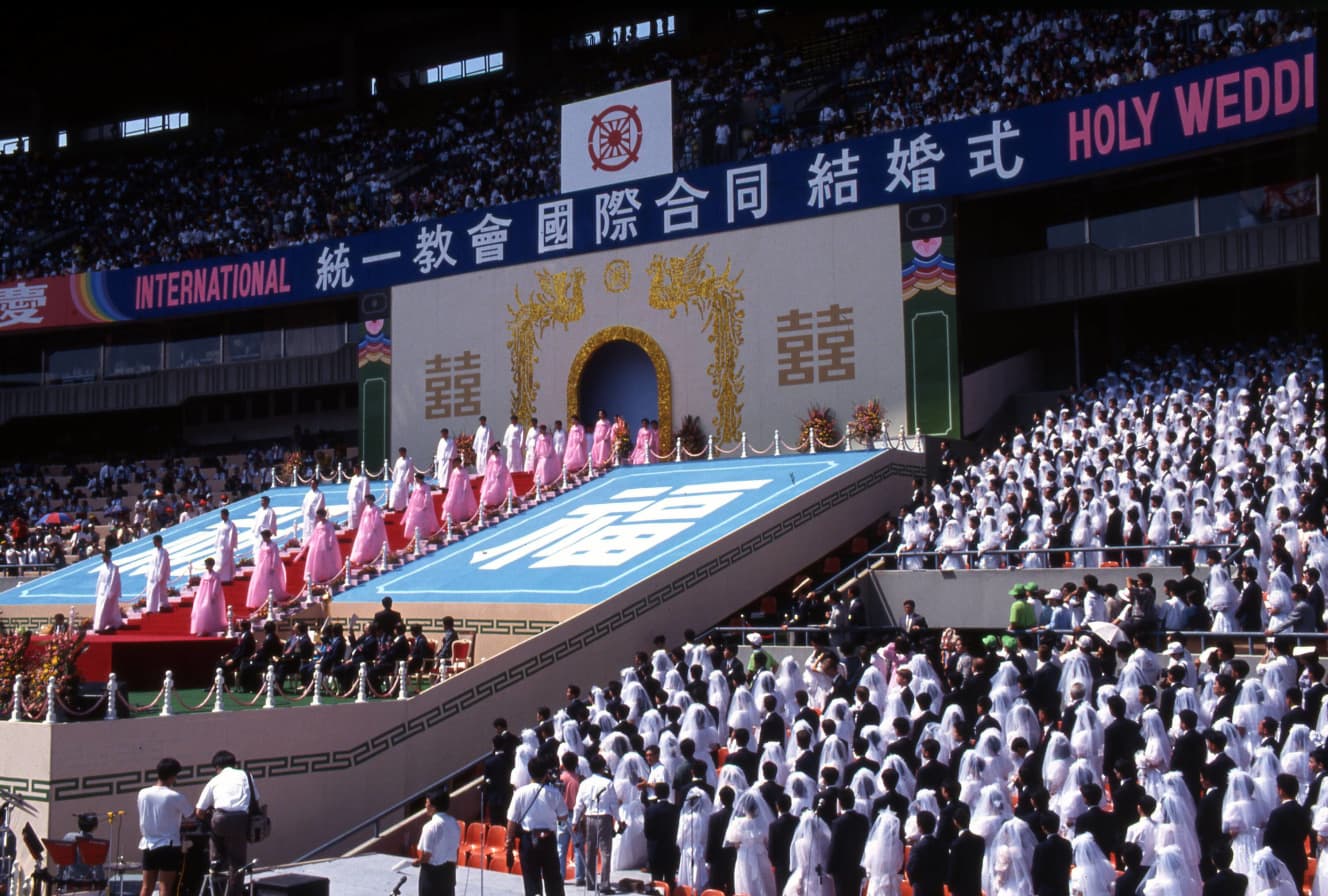Abe, a former reporter, saw the misery of Japanese wives who married into Korea in a “joint wedding ceremony.

I met her in the late 1990s in a village in northeastern South Korea.
Early in the morning on a cold day, she was delivering newspapers from door to door on her bicycle. I was able to encounter her through the guidance of a support group that was helping to reclaim her from the Unification Church.
At the time, I was a reporter for “Time Angle” (Fuji TV), covering incidents related to the church. I was able to interview her, but it was a tense five-minute interview because I had to return home at a certain time.
Her name is Yoko (pseudonym). She said she was in her early 30s, but to my eyes she looked to be in her mid to late 40s, with no makeup, rough skin, and dry hair.
She was born and raised in a family of public servants in the Kanto area, had graduated from a junior college, and was leading a comfortable life. She told me she had one younger brother.
It was six years ago that he joined the Unification Church. Invited by a friend from junior college, he became a believer because he sympathized with its doctrine and world peace.
No one, including his parents, agreed with his participation in the joint wedding ceremony. However
I can do it.
She was motivated by her “baseless confidence” and decided to participate in the wedding.
I met my relative (my husband-to-be) for the first time at 88 Stadium in Korea, the venue of the joint wedding ceremony. He was the second son of a farmer, and seemed unreliable.
After the joint wedding ceremony, hell soon broke loose.
Married life in the family home in northeastern Korea was truly a living hell.
There was no room for the second son in the family home, and Yoko-san slept and woke up in a pigsty.
Yoko could speak a few words of English, but her husband was illiterate and spoke only Korean. There was no conversation and no time for family reunions. Occasionally, her husband would visit her, but when he was finished, he would leave.
She is simply a laborer. In addition, she was forced to deliver newspapers for cash income.
Despite such a poor environment, strangely enough, the only “source of support” for her was
“I read the Unification Church’s teachings,” he said.
He said, “I am not allowed to go outside.
She was allowed to go outside, and was able to make contact with a support group. Through the support group, Yoko came to know her husband’s true intention in joining the church.
About 30 years ago, few people would marry the second son of a Korean farmer.
Then, someone from the Unification Church told her, “If you join the church, you will have a high school education.
If you join the church, you can marry a highly educated Japanese woman.
He was told that he had joined the church because he was solicited by a Unification Church official to marry a highly educated Japanese woman if he joined.
When I asked Yoko, “Why didn’t you escape?” Yoko replied, “They took away my passport.
She replied, “They took my passport and I had no cash. I don’t know where I am and I don’t know where I am.
She told me, “They took my passport, and I have no cash.
After returning to Japan, I did everything I could to find out where Yoko was, but her whereabouts remained unknown.
Later, the Unification Church split up after the death of Wen Sun Myung Moon. The Unification Church changed its name to the “Family Federation for World Peace and Unification” and still holds joint weddings. We do not know if the tragedy of the “Japanese wife” as it was then is still continuing today.
I can only pray for Yoko’s safety, but I have heard that there were many women who believed in the Unification Church and traveled to the African continent and other places at that time.
I wonder if the day will ever come when the voices of women waiting for help in a corner of the world will be heard….
(text): Mitsutoshi Abe (former reporter)
Born in 1956, Mitsutoshi Abe debuted as an exclusive reporter for Fuji Television's "TIME3" and later worked for the station's "Time Angle," "Ohayo! Nice Day", "Nice Day", "Tokudane! and "2 o'clock Honn. From '11 to '19, he served as a member of the Taito Ward Assembly of Tokyo. In 2008, he became the first public secretary to a member of the House of Representatives. Currently, he covers social issues and other topics from a unique perspective. He is active as a reportage writer.
Photo: Fujifotos/Afro